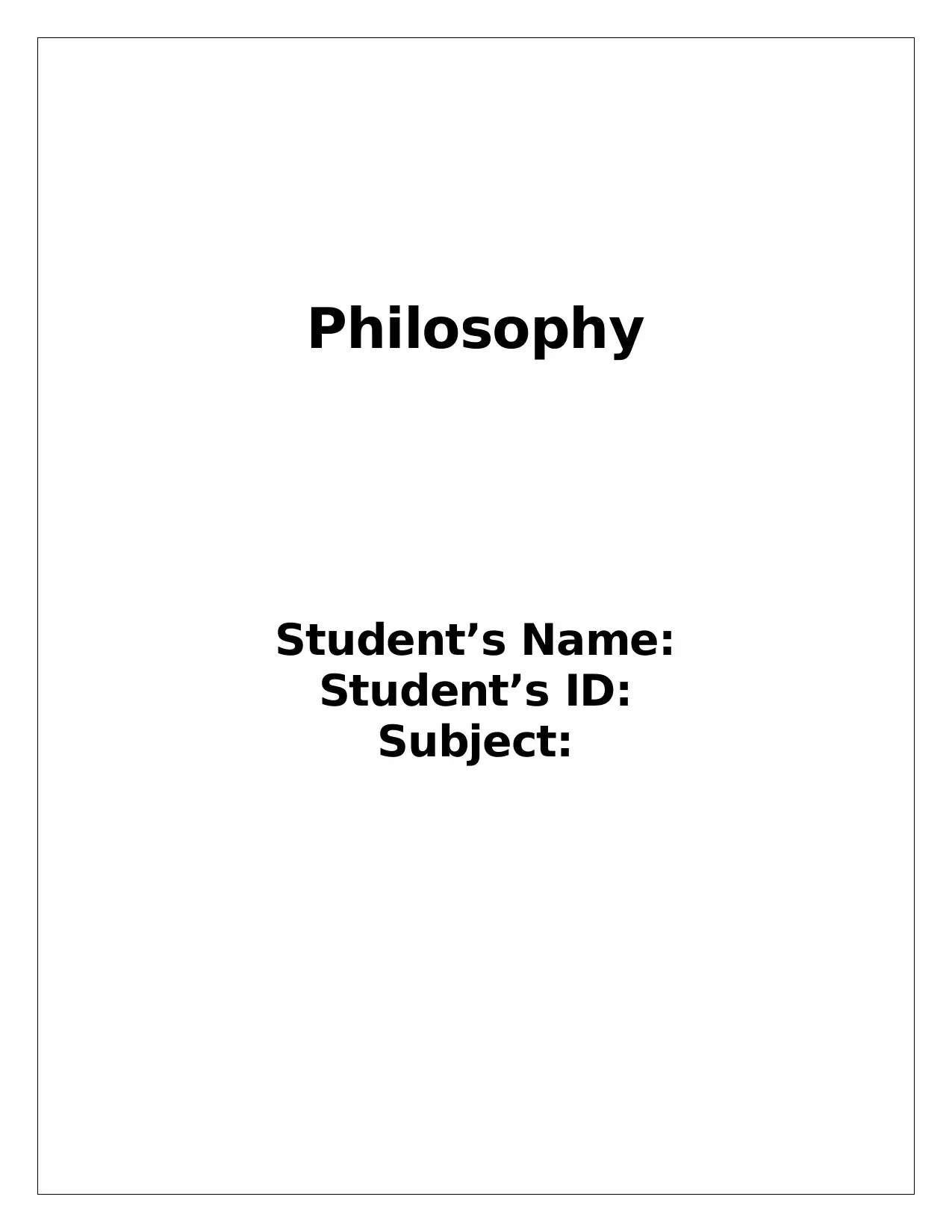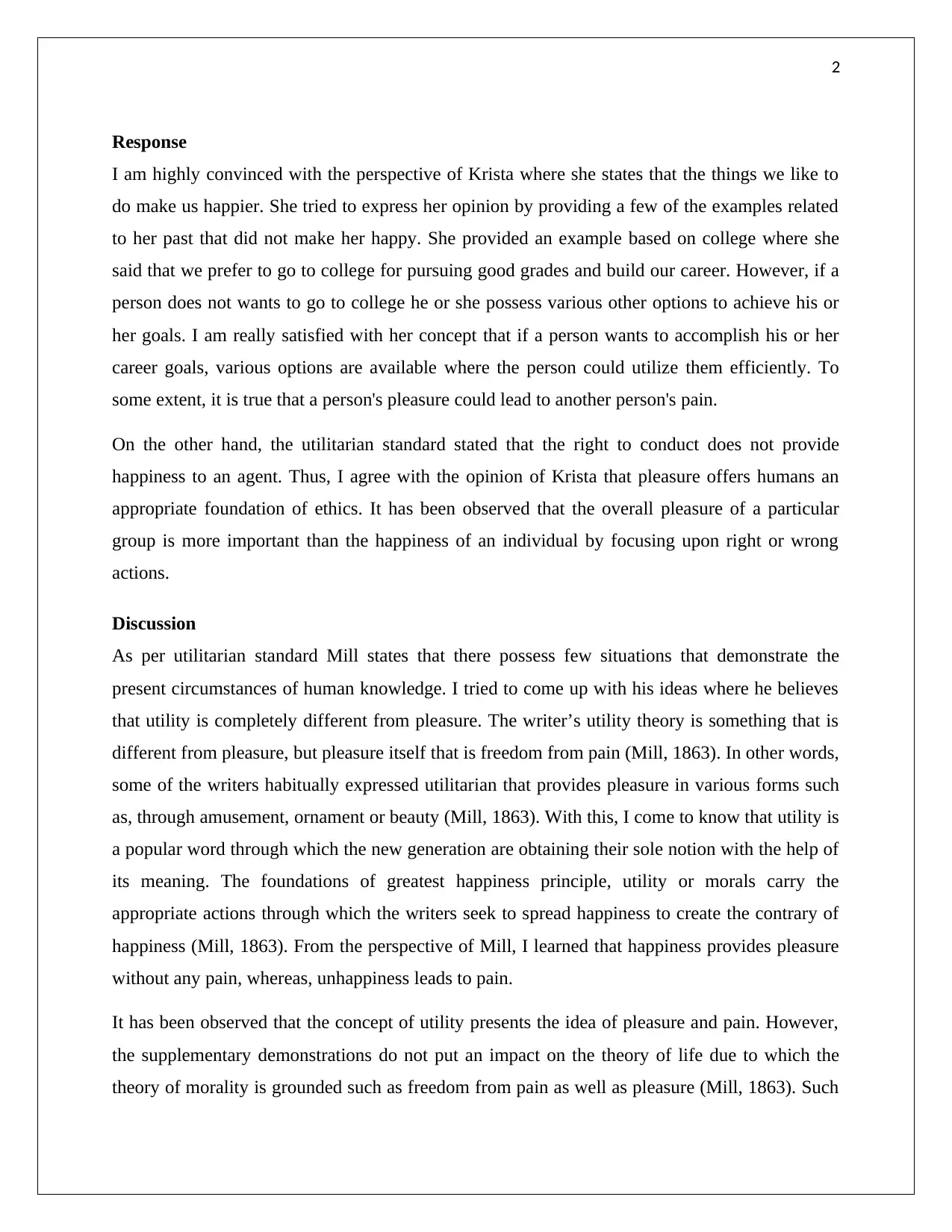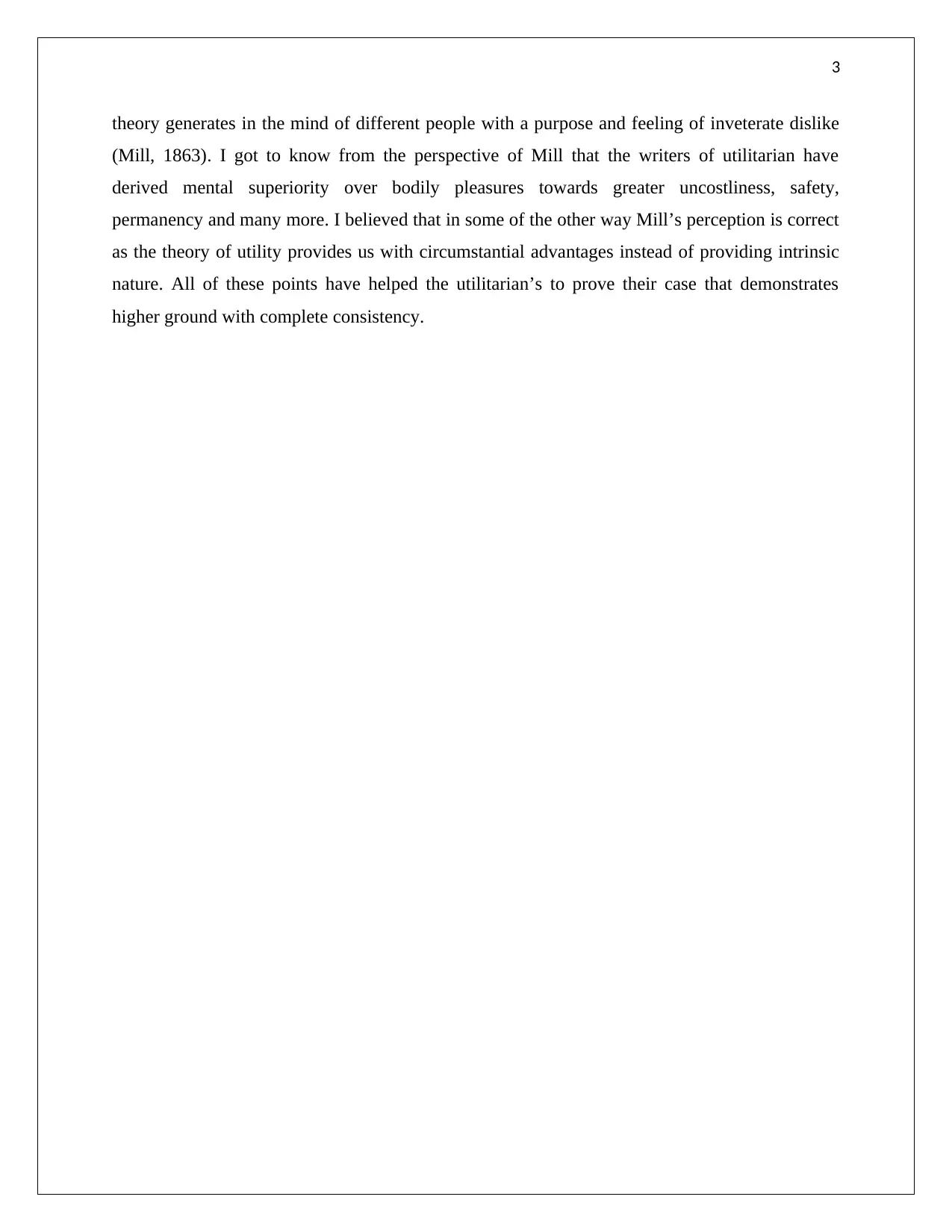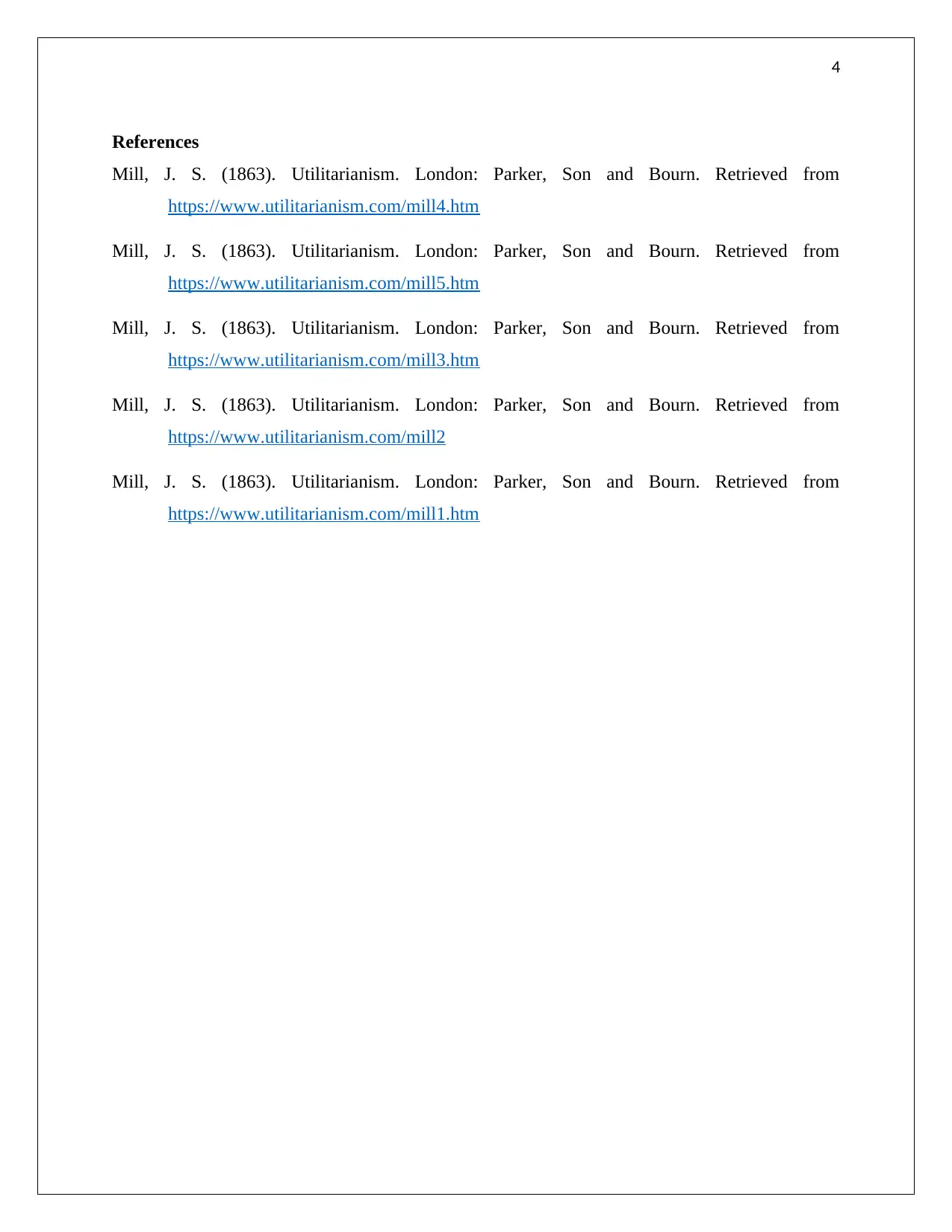Philosophy Discussion: Analyzing Utilitarianism, Pleasure, and Ethics
VerifiedAdded on 2023/04/20
|5
|718
|389
Discussion Board Post
AI Summary
This philosophy discussion post presents a student's response to the concept of utilitarianism, focusing on the ideas of pleasure, ethics, and the views of John Stuart Mill. The student agrees with the perspective that pleasure offers a foundation for ethics, aligning with the utilitarian standard that prioritizes overall group pleasure over individual happiness. The discussion explores Mill's ideas on utility, distinguishing it from pleasure as freedom from pain. The student references Mill's work to analyze happiness, pain, and the greatest happiness principle, concluding that utilitarianism provides circumstantial advantages. The post includes references to Mill's 'Utilitarianism' to support the arguments made. The student's analysis offers insights into the complexities of utilitarianism and its relevance to ethical considerations.
1 out of 5











![[object Object]](/_next/static/media/star-bottom.7253800d.svg)